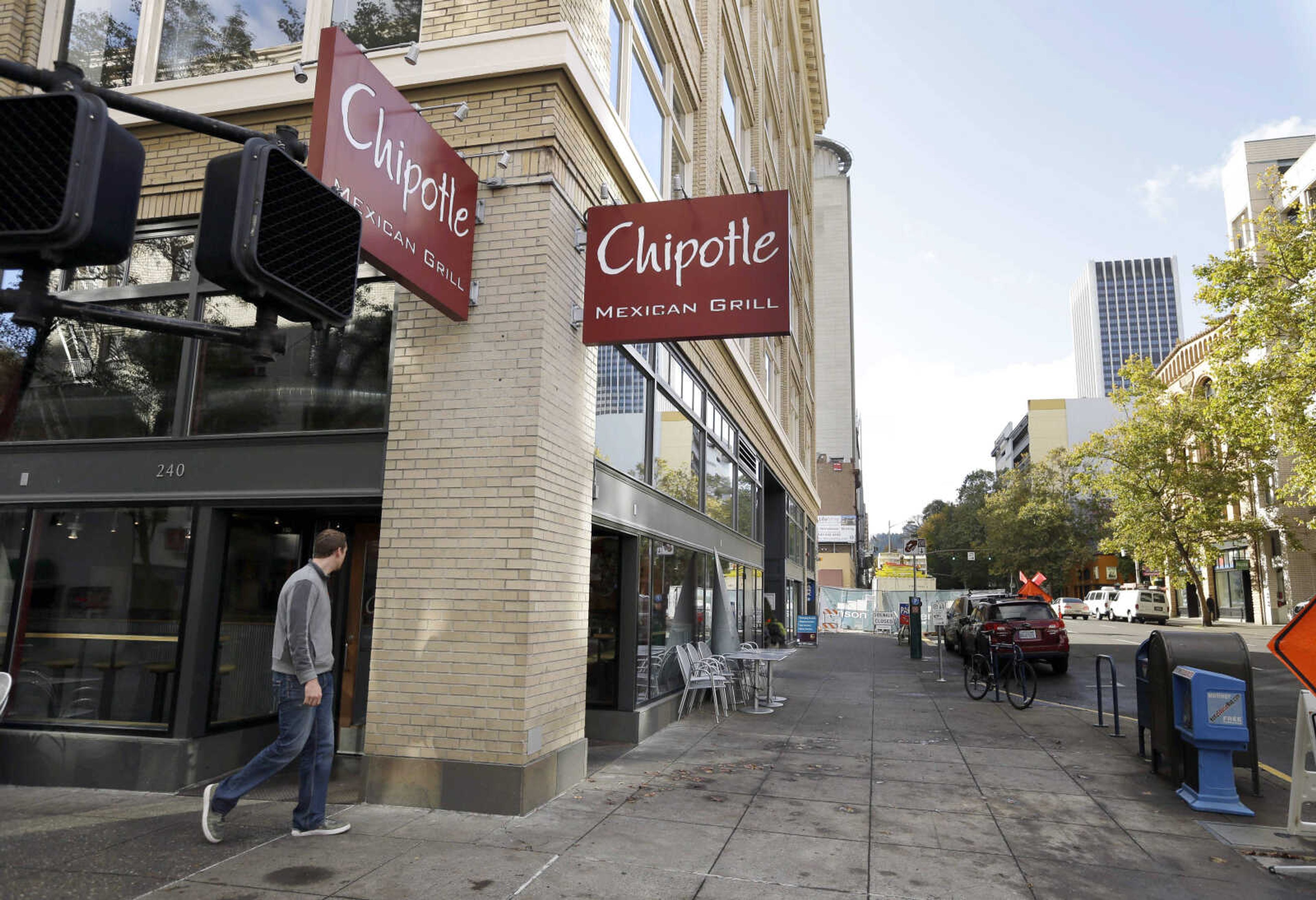DNA hunt on as Chipotle-linked E. coli outbreak grows to 37
SEATTLE -- Chipotle's industry-leading commitment to tracking its ingredients from farm to table is being put to the test by an E. coli outbreak that has sickened at least 37 people as of Tuesday, nearly all of whom ate recently at one of the chain's restaurants in Washington state or Oregon...
SEATTLE -- Chipotle's industry-leading commitment to tracking its ingredients from farm to table is being put to the test by an E. coli outbreak that has sickened at least 37 people as of Tuesday, nearly all of whom ate recently at one of the chain's restaurants in Washington state or Oregon.
Scientists also said Tuesday they identified the specific microorganism responsible, which they believe was carried on fresh produce such as lettuce or tomatoes.
The chain of casual Mexican restaurants voluntarily closed 43 locations in the two states after health officials alerted them to a growing number of E. coli cases involving people who shared one common experience: a meal at Chipotle during the last two weeks.
The numbers grew from 3 to 12 probable cases in Portland area and from 19 to 25 probable cases in five counties near Seattle on Tuesday.
Washington State Epidemiologist Dr. Scott Lindquist said the specific microorganism responsible for the outbreak is Shiga toxin-producing E. coli O26.
Now they're doing more tests, on samples of human waste and on any E. coli found in food samples, looking for any exact DNA matches. That, in turn, should indicate which ingredient carried it into the meals of diners, Lindquist said.
Food from the restaurants linked to the outbreak is being tested, and Lindquist said they may know by today which produce, if any, tests positive for the same bacteria.
Authorities already have asked Chipotle to turn over information about its food suppliers.
"We're really relying on working closely with Chipotle," said Dr. Katrina Hedberg, Oregon's state epidemiologist.
Chipotle Mexican Grill chairman Steve Ells said in a statement Tuesday the company immediately closed 43 restaurants "out of an abundance of caution, even though only eight restaurants have drawn concern."
The company said it also is doing its own tests in its restaurants and distribution centers, in addition to those done by state health officials; it is fully sanitizing the restaurants, replacing all the food, and testing batches of ingredients in its supply chain as it helps the investigators.
Multistate outbreaks have increased sharply in recent years, the Centers for Disease Control and Prevention reported Tuesday. On average, two dozen occurred from 2010 to 2014, up from six a year from 1973 to 2010. That's partly due to better detection, but food industry consolidation has meant companies ship to wider networks of grocery stores and restaurants now, so tainted products can spread more widely as well.
In this case, identifying the supplier of any contaminated produce should be easier because Chipotle uses traceability software, made by the Durham, North Carolina-based FoodLogiQ company, and has promised its consumers it can trace every box of fresh ingredients from farm to table, in real time.
"Ideally, any of these trace-back systems should help," said Jaydee Hanson, a senior policy analyst at the Center for Food Safety, a Washington, D.C.-based not-for-profit that promotes food safety and sustainable agriculture.
In 2008, health officials initially suspected raw tomatoes to be the source of a salmonella outbreak that sickened people around the country, Hanson recalled. Without adequate ways of tracing tomatoes or other contaminated produce to their origins, everybody stopped buying tomatoes, everywhere.
In this case, Chipotle has been able to have a much more targeted response.
"Being able to quickly find where the problem is, is why our organization and others have been arguing for good traceability, from farm to fork," Hanson said. "Chipotle is to be commended for trying to put in place a system to trace its supply, and hopefully it works this time."
AP Medical Writer Mike Stobbe in New York and reporters Gene Johnson in Seattle and Jonathan J. Cooper in Portland, Oregon, contributed to this story.
Connect with the Southeast Missourian Newsroom:
For corrections to this story or other insights for the editor, click here. To submit a letter to the editor, click here. To learn about the Southeast Missourian’s AI Policy, click here.









